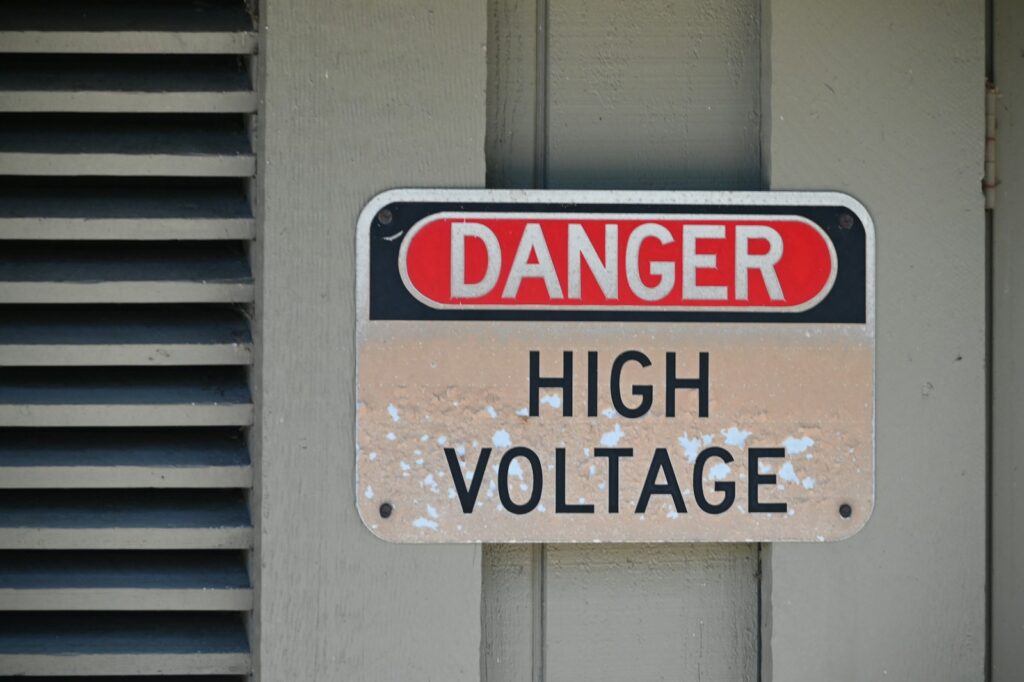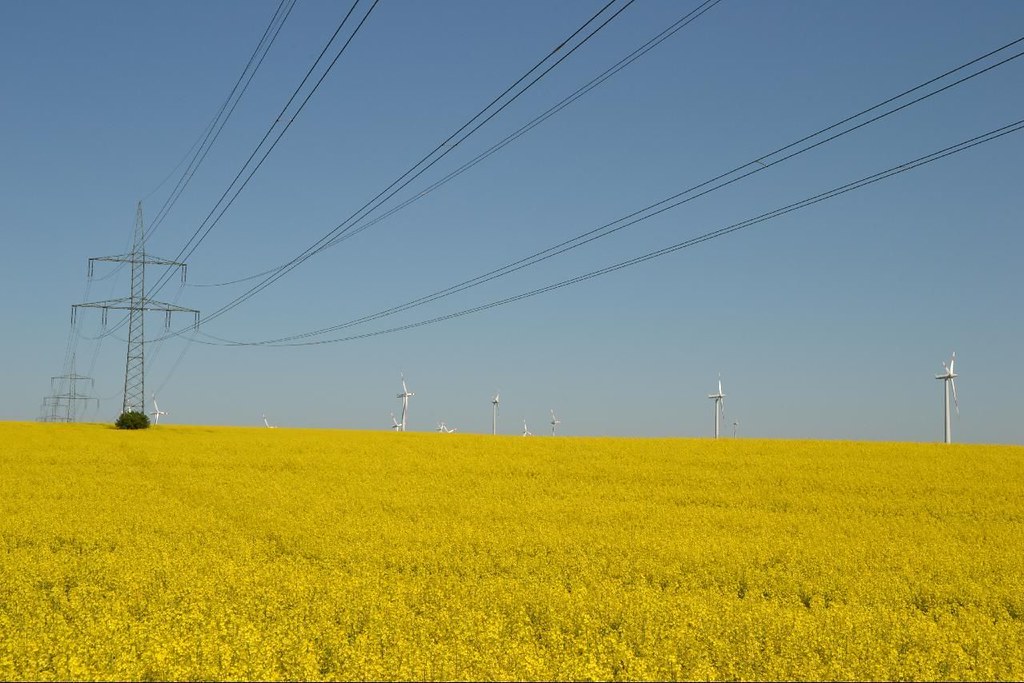A Note About Images: The images used in our articles are for illustration purposes only and may not exactly match the content. They are meant to engage readers, but the text should be relied upon for accurate information.
Voltage is a fundamental concept in physics and electrical engineering that powers our modern world. From the devices we use daily to the lightning that illuminates stormy skies, voltage plays a crucial role in countless aspects of our lives. Yet, despite its ubiquity, there’s still much about voltage that might surprise you.
In this comprehensive guide, we’ll explore 17 fascinating facts about voltage that will expand your understanding and leave you in awe of this powerful force. Whether you’re a curious learner or a physics enthusiast, these voltage facts are sure to spark your interest and shed light on the electrifying world around us. So, let’s dive in and unravel the mysteries of voltage!
1. The Essence of Voltage
Voltage is the electric potential difference between two points in an electrical circuit. It’s measured in volts, named after the Italian physicist Alessandro Volta, who invented the voltaic pile – the first electrical battery. This fundamental concept drives the flow of electric current and powers our modern world.
2. The Dual Nature of Voltage
Voltage can be both beneficial and dangerous. While it powers our homes and devices, making modern life possible, high voltages can pose significant risks to human safety if not handled properly. This duality makes understanding voltage crucial for both utilizing its benefits and ensuring safety.

3. Voltage as the Driving Force
Think of voltage as the “pressure” in electrical systems. Just as water pressure pushes water through pipes, voltage pushes electrons through electrical circuits. This analogy helps visualize how voltage functions as the driving force behind electric current.
4. Global Voltage Diversity
Interestingly, voltage standards vary across the globe. In the United States, the standard household voltage is 120 volts, while many European countries use 230 volts. This diversity highlights the importance of voltage adaptors for international travelers.
5. Lightning’s Staggering Voltage
Nature demonstrates voltage on a grand scale through lightning. During a strike, lightning bolts can reach astonishing voltage levels, often soaring to hundreds of millions of volts. This fact puts into perspective the immense electrical forces at play in our atmosphere.
6. High-Voltage Innovations
Human-made devices can also generate impressive voltages. Van de Graaff generators, used in physics demonstrations and research, can produce voltages in the range of hundreds of thousands of volts. These machines showcase our ability to harness and control high voltages for scientific purposes.
7. Electromagnetic Fields and Voltage

Changing voltages in power lines and devices create electromagnetic fields. These fields are essential for various applications, including wireless communication and the operation of electrical motors. Understanding this relationship between voltage and electromagnetic fields is key to many modern technologies.
8. The Importance of Insulation
High-voltage power lines require proper insulation to prevent electrical leakage and ensure safe electricity transmission. This fact underscores the critical role of materials science in electrical engineering and the safe distribution of power across vast distances.
9. Voltage Regulators in Electronics
Voltage regulators are crucial components in electronic devices. They maintain a constant output voltage, protecting sensitive components from potentially damaging fluctuations. This steady voltage supply is essential for the reliable operation of our everyday gadgets.
10. The Human Body’s Electric Connection
Surprisingly, the human body generates its own electrical voltages. Nerve signal transmission and the movement of charged particles within cells produce minute voltages. This biological voltage generation is fundamental to many of our body’s functions.
11. The Voltage-Power Relationship
Power, measured in watts, is directly related to voltage. The formula P = VI (Power = Voltage × Current) demonstrates that adjusting either voltage or current influences power output. This relationship is crucial in designing efficient electrical systems.
12. Induced Voltage and Transformers
Changing voltage in one circuit can induce an electric field in an adjacent circuit. This principle forms the basis for transformers and induction coils, which are essential in power distribution and many electronic devices.
13. Voltage in Electronics
Voltage is a cornerstone of electronics. Precise voltage control is necessary for the optimal operation of integrated circuits, transistors, and other electronic components. This fact highlights voltage’s role in enabling the digital age.
14. Measuring Voltage
Voltmeters are specialized instruments used to measure voltage in circuits. They connect in parallel to the circuit and provide readings in volts, allowing engineers and technicians to diagnose and optimize electrical systems.
15. Voltage in Power Transmission
High voltages are essential in long-distance power transmission. By increasing voltage, power companies can reduce current, minimizing energy loss over long distances. This fact explains why you often see massive high-voltage power lines stretching across the countryside.
16. Electric Eels and Voltage
Nature has its own high-voltage generators. Electric eels can produce voltages of up to 860 volts to stun prey and defend themselves. This remarkable ability showcases how voltage generation has evolved in biological systems.
17. Voltage and Energy Storage
Batteries store energy in the form of chemical potential, which is released as voltage. Different battery types provide different voltages, which is why we have a variety of batteries for different applications.
Conclusion
Voltage, an indispensable element in physics and electrical engineering, drives our modern world in ways both obvious and subtle. From powering our homes to enabling complex electronic devices, voltage is the unsung hero of our technological age.
Understanding these 17 facts about voltage not only enhances our appreciation for this fundamental concept but also highlights its critical role in technological progress. From the pioneering work of Alessandro Volta to the complex systems that power our cities, voltage continues to shape our world and drive innovation.
As we look to the future, a deeper understanding of voltage will be crucial in developing more efficient power systems, advancing renewable energy technologies, and pushing the boundaries of electronic innovation. Whether you’re a student, a professional, or simply curious about the world around you, these voltage facts provide a foundation for understanding the electrifying forces that shape our lives.
FAQs About Voltage
What exactly is voltage, and why is it important?
Voltage is the electric potential difference between two points in a circuit. It’s crucial because it drives the flow of electric current, powering our devices and electrical systems.
How is voltage measured, and what tools are used?
Voltage is measured in volts using a device called a voltmeter. Voltmeters are connected in parallel to the circuit being measured.
Can voltage levels be altered, and if so, how?
Yes, voltage levels can be altered using transformers, which can step voltage up or down, or through voltage regulators in electronic circuits.
Why is high voltage used in power transmission?
High voltage is used in power transmission to reduce current flow, which minimizes energy loss over long distances.
How do electric eels produce high voltage?
Electric eels have specialized cells called electrocytes that can generate electric charges. These cells are stacked, allowing the eel to produce high voltages.
Are there risks associated with high voltage?
Yes, high voltage can be dangerous if not handled properly. It can cause severe injury or death through electric shock and can also lead to fires if not properly insulated.
By exploring these fascinating facts about voltage, we gain a deeper appreciation for the electrical forces that power our world. From the lightning in the sky to the batteries in our devices, voltage is an ever-present and essential part of our lives, continually shaping the technological landscape around us.






